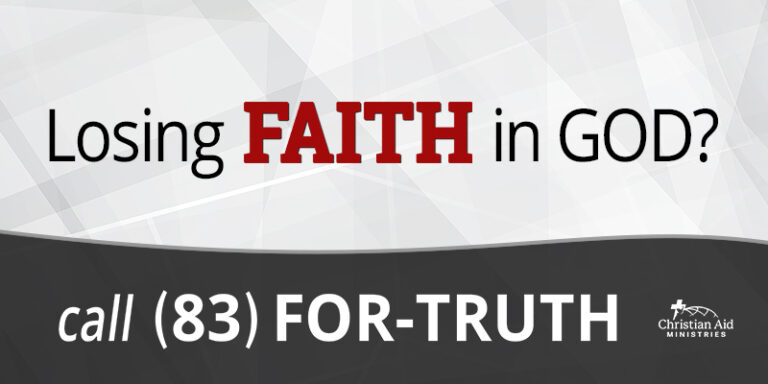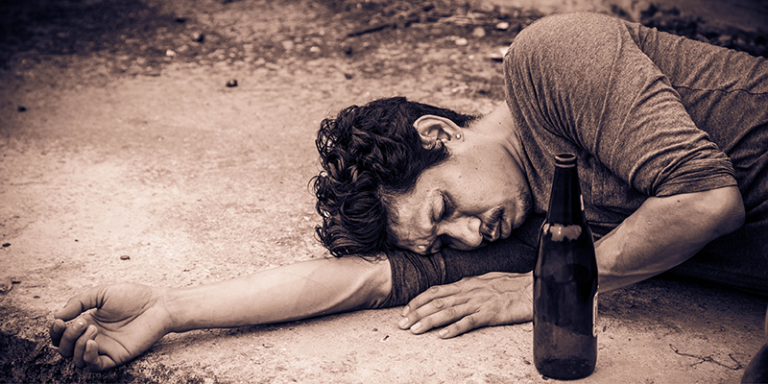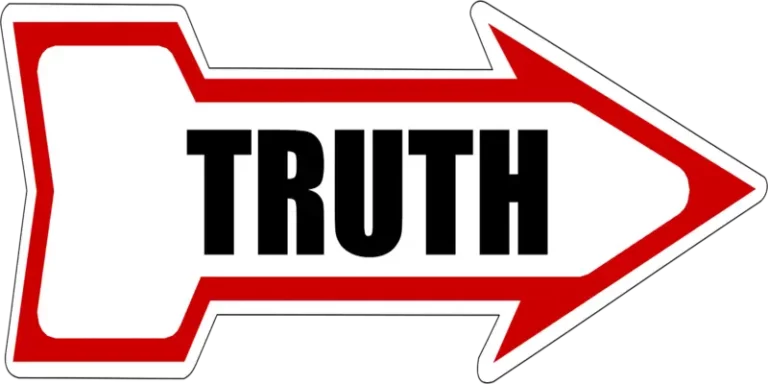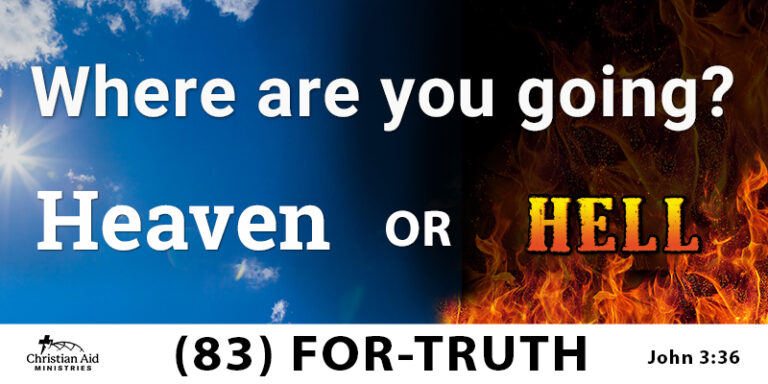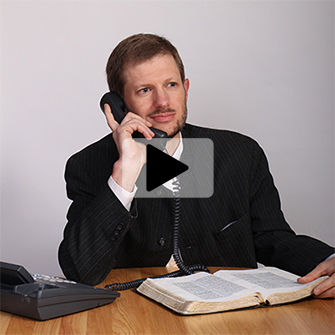The Freedom of Forgiveness Received
In the fall of 1991, just 11 months after passing my driver’s license test, I had been driving with no accidents and no tickets. Basically, I thought I was the best driver in the nation. I remember how much fun it was trying to push the limits. My parents’ drive to church, for example, took about 15 to 20 minutes; I did it once in eight. It was a video game to me rather than the responsibility it should have been. As I said, I hadn’t gotten into any trouble; no tickets for speeding, no accidents because of recklessness, although I had a few close calls. But don’t we all? On Sunday, November 3, 1991, I went to church with my family and couldn’t wait for it to be done so I could rush home, shovel down dinner, and leave to play football with the guys from church, our Sunday afternoon tradition. After lunch, my brother, Jeff, and I hopped into my parents’ early 1980s AMC Concord station wagon.
Yellow with imitation wood grain paneling on the sides, it is a model hardly seen anymore. We picked up his friend, Chad, my friend, Dave, and sped over to Lancaster Christian School for the game.
I knew the back way to LCS very well because my brother, sister, and I attended there through eighth grade. Part of that back way took us south on Kissel Hill Road just to the east of Lancaster Airport. It was a beautiful fall day, cool, clear, and crisp. I clearly remember driving on the section of Kissel Hill Road between Millport Road and Oregon Road. As I came over the crest of one small hill, I hit the gas, and we felt the car lurch into high gear. Sounding like I knew what I was talking about, I made some inane comment about the car “doing well today because it hit third gear at 70 mph.” Dave, who hadn’t yet put on his seatbelt, responded that he’d better do so! Little did he suspect that his caution might have saved his life. As he fumbled with the belt, I saw an Amish buggy about 100 yards in front of us in our lane, heading the same direction as we were. I said to everyone in the car something like, “I’m going to blow by these guys.” I thought I was so incredibly cool.
I stomped on the gas again, now doing about 70-75 mph, and steered the car into the left lane to pass the buggy. As we raced closer to the buggy, I will never, ever forget seeing the nose of the horse turn out in front of me. Instantly, I knew they were trying to turn in front of me. I hadn’t looked for, nor had I seen their turn signal or the small country road they were attempting to turn left onto. Instinct took over as I pounded the brake pedal with my foot. The brakes locked, and the car skidded forward, tires screaming. We smashed into the buggy, and I heard the POP of my windshield shattering into tiny pieces of glass.
The buggy flew over the top of the car, and we rumbled to a stop in the field to the left. My hands, gripped tight to the wheel, were streaming with blood, but only from shards of windshield glass that grazed my knuckles. I still have a tiny scar in between two knuckles on my left hand, a constant reminder that basically nothing happened to me.
Dave never quite got his seatbelt buckled. When I hit the brakes, he grabbed the shoulder belt and held on with both hands. The belt locked and swung him around like Tarzan, and his left shoulder hit the windshield. Possibly his shoulder, but maybe the buggy broke the windshield. Other than soreness, though, neither he, Jeff, nor Chad were hurt. Dave’s father, who visited the scene that evening after it was cleared, later told us that the skid marks from the car quite visibly ran off the road, missing a telephone pole by about 12 inches. It all happened so fast; I do not even remember seeing a telephone pole.
After making sure everyone in my car was okay, I tried to open my door, but the collision had jammed it shut. Just then, an Amish man came running up to our car yelling frantically, “Does anyone know CPR? Does anyone know CPR?” At 17, I was the oldest in the car. I think Dave had a bit of training, but we were not prepared for what we saw after we got out. We walked to the crash site and saw the Amish man holding the crumpled pile of what looked like his mother. She was severely injured, convulsing, and definitely missing teeth. I told Jeff and Chad to run to the nearest homes, which in that area were all farms, to find a phone and call 911. They sprinted across the fields, so riveted on getting to a phone that my brother never even saw the Amish lady. He remembers that the fields were recently plowed, making his trek as though he was running sluggishly on a sandy beach. It was a very frustrating prospect when all he wanted was to get to a phone as fast as possible. My brother’s race to the phone was the first instance of many in which I realized the extreme pain my sin had brought not only to the Amish family but also to my family. Imagine being a 13-year-old, running with all your might to get to a phone to call 911 because your older brother had caused an awful accident?
Dave and I stayed and flagged down cars hoping someone might have a mobile phone, which at that time was still a rarity. I tugged at his shirt in desperation, saying something like, “What do we do?”
Immediate Aftermath
My dad and I sat in the back seat of the police cruiser—eventually, cars stopped, and a policeman and an EMT/ambulance crew came to the scene. That was a huge relief for me. A family friend who was driving by picked Jeff up from the scene and dropped him off at our home. He was the first to inform my parents, and together with my dad, returned to pick me up. On their way back to the accident, from a distance they could see the car in the field and the unrecognizable buggy. Imagine the dreadful feeling of driving to the scene of devastation that your son caused. How that must have felt for my dad! I don’t remember much except fear and an overwhelming desire to tell the truth and to get what I knew was a weighty burden off my back, as my dad and I sat in the back seat of the police cruiser. The officer gave my dad and me a few moments alone after I had blurted some initial details. We assumed he left us to ourselves then so that we could go over the details of the story together, possibly to come up with a spin that didn’t make me so culpable for the accident. Although I knew it was horrible, I told him exactly what happened, even the fact that I was going at least 70 mph. They were able to confirm that later anyway by the length of the skid marks. I came to find out in the coming weeks that the officer was really impressed with my honesty. At the time, I was simply scared to death of any further trouble. Lying was not an option. I didn’t know if I was going to jail, the local juvenile detention center, Barnes Hall, or some other awful place. But the cop let me go home with my dad, clearly stating that there would be a follow-up.
I’ll never forget what my dad said in response to my rather tepid apologies as we drove away, “You’ve been through enough. We’re not going to make it worse for you.” He was right, and I’m very glad for it. It was already bad and about to get worse. When we arrived at our house, less than five minutes away, my mom met me at the door. I must have spent the next half hour just crying on my mom’s shoulder. As the news got out, many family and friends showed their love and support by coming over to do nothing and everything at the same time: be there. The friends from church whom we were on our way to meet, stopped their football game and came over, dirty and disheveled from the game. Gradually, a herd of my school and church friends migrated to our house to show support. That in itself was meaningful because I had rarely attempted to mix these two groups of people. I think they even prayed together.
As I was huddled with my friends in my basement, my parents called me upstairs to my bedroom to tell me that the police officer had just called with a report about the Amish lady who had been taken to the hospital. Due to permanent brain damage, she needed life support to stay alive. Since the Amish don’t believe in life support, she died that night in the hospital. The horrible news began to pile on me.
The Amish lady, the officer told us, wasn’t the mother of the man. It was his wife. More than that, it was his newlywed bride, and they had been on their honeymoon. They had only been married for five days; he was 21 years old, and she was 19. Traditionally, November is the Amish wedding season. They were on their customary Amish honeymoon travels, visiting a few days in one relative’s home, then moving on to another and another, and so on. Amid that bliss, she was dead, and I had killed her. It was, and still is by far, the worst day of my life.
My mother recalls that she held me crying in her arms while my dad and brother sat next to me on the bed, and my nine-year-old sister, Laura, was convinced I was going to jail! Eventually, everyone left our house, but God and I talked long into the night.
The next day my parents allowed me to stay home from school, and one of my friend’s parents let him stay with me. He picked me up, and we watched Monty Python videos to get our minds off the disaster. In the middle of Live at the Hollywood Bowl, my parents called. They had found out from my uncle, who had connections in the Amish community, that the viewing was going to be that day, and they told me that I was going. It was extremely frightening news. Yet, it signals the depth of my parents’ character. I know my dad later told people that it was the hardest thing they ever had to do. As a parent of a six and five-year old now, I can hardly imagine what I would do if I was in their shoes. How would I handle this horrible thing my son had done? How responsible would I feel? And what would my reaction be? Step by step, through the process of dealing with my sin, my parents did everything right. In a world where so many want to shift blame, especially when their children mess up, my parents stood by me and guided me through handling this situation in a God-honoring, responsible, and truthful manner.
That evening, my parents, my youth pastor (who had been at our church for only three months—still amazes me that he came—another example of godly commitment), and I went to where we thought the viewing was going to be. I felt so nervous that there was actual pain ripping across my guts. I didn’t know what these people were like (shows how much this Lancastrian cared about the Amish subculture, as I grew up surrounded by it) or what was going to happen. Would they come pouring out onto the porch of the house with shotguns? That was literally the image in my mind. We arrived at the house, but it didn’t seem like anyone was at home. We had mistakenly been given the location, not of the viewing, but of the husband’s family’s home. Some of his relatives were inside, and my mom remembers his grandmother coming out to meet us, hugging me, and expressing her forgiveness. This kind gesture I do not recall, most likely because, in my mind, the worst was yet to come. Amazingly, the husband’s father was there and needed a ride to the viewing. We took him with us as he directed our way. The father, while very reserved, wasn’t mean to us and even expressed his forgiveness. But can you imagine driving to the viewing of your son’s new wife with the family of the guy who was responsible for her death?
When we finally made it to the viewing, we saw Amish buggies parked all over the farm property, heightening my fear. This was a tragedy in the life of Lancaster’s Amish community, drawing many to support the family and attend the viewing. A loss in what was supposed to be a joyful season made the front page of the local news-paper. Then the moment came. We got out of the car and walked into the dimly lit house. My mom mentioned that because the father-in-law was with us, we didn’t have to go through the painful process of knocking on the door but were immediately ushered into the house.
I had never been in an Amish home and was surprised at how similar it looked to my own. The family, through the grapevine, knew that we were coming and met us in the front room. The parents of the Amish lady who died, Melvin and Barbara Stoltzfus, walked up to me and put their arms around me. Through tears, I muttered how sorry I was, and they spoke some of the most incredible words that I think are possible to utter, “We forgive you, we know it was God’s time for her to die.”
Unbelievable.
It was totally, absolutely amazing. But the family went even further than that! They proceeded to invite my family to come over for dinner!
And they wanted us to come soon, within a few weeks! I cannot express the relief that flooded over me.
Then someone led me to a back room where the husband, Aaron Stoltzfus, stood beside the open casket of his wife, Sarah. To my surprise, as I nervously glanced at her, I was looking at a beautiful young woman. Aaron, like her parents, came to me with open arms. I asked, “How can I ever repay you?” He simply forgave me. We hugged as the freedom of forgiveness swept over and through me.
As I read and reread the previous few paragraphs, I feel extremely limited in my command of the English language to evoke the feeling of what took place. When I tell the story live, it seems to carry a greater impact. Maybe the audience reads my face. Maybe the emotion can’t help but flow through me. All I know is that the Stoltzfuses’ concise words of forgiveness rushed through me with power. Some people have said that Amish can forgive like that because their theology leans toward fatalism, meaning that they believe everything is determined and is bound to happen. There is no reason to get all bent out of shape about something bad. God is in control. They become somewhat emotionless about all the pain and suffering in life. They are much more capable of dealing with it well. I don’t know how true that is for every single Amishman, but I do know that this particular family is very emotional in a positive way. They are incredibly upbeat and warm people. And I know the accident, Sarah’s death, was very hard for them.
My mom, recalling the events, said, “I will never forget what Pastor Jim told us the next day. He watched Joel during this entire night.
He said he started out as a young teen with an incredible burden of guilt on his shoulder but walked out of that house with a tremendous weight taken from him through forgiveness.”
The Sentence
The Stoltzfuses did have us over for dinner sometime the next month, an event I recall with wonder. There we were, sitting in that same Amish home with Sarah’s family, Aaron, and some from his family, too. The table was loaded with delicious food, and never once did they show any kind of resentment. Never once did they attempt to make us feel bad. On the contrary, it was a kind of get-to-know-you session, an intentional beginning to a meaningful relationship. We exchanged stories comparing the Amish subculture with mainstream American culture. They were so kind by opening their home and hearts to us!
The broader Amish community in Lancaster was also very impressive to me. I still have the pile of at least 50 cards that I received from various Amish people across the county. They were constantly encouraging me and pointing me to God.
It was also at this time that I clearly recall a striking visit from my soccer coach. I remember meeting him at the door one evening, probably just a few days after the accident. I will never forget what he said. “Joel, you will be compassionate from now on.” How true. Since that time, I have never had trouble forgiving people. Not that I have worked on it and have become talented at it. On the contrary, I think God must have changed my heart because I don’t have to try to forgive anymore. It flows out as naturally as my heart beats without my having a say in the matter.
Handing my keys over to my parents, I did not drive again in the ensuing months. My trial was set for February 5, 1992. Because of the severity of the accident, I was charged with vehicular homicide, a charge that indicates the accidental, but irresponsibly reckless use of a vehicle that caused the loss of life. I’m not sure where it falls on the murder/manslaughter scale, but I do know that if I would have been one year older, I could have been facing jail time, which is another facet of the whole story that points me to the grace of God. I was 17, a minor, and was therefore dealt with under the juvenile justice system and saved from a much harsher penalty in the adult courts. Soon after the accident, I was assigned a probation officer and a public defender to walk my family and me through the penal process prior to the court date. The standard punishment for juvenile vehicular homicide at the time was a suspension of the offender’s driver’s license for three years, 200 hours of community service, payment of all court costs (only about $100), and probation until the community service requirement was completed. To me, with Sarah’s life gone because of my actions, it was an extremely generous sentence.
My trial and punishment served as another moment for the Amish family to demonstrate the freedom of forgiveness. They wrote letters to the judge, begging for my pardon, asking that I be acquitted on all counts! Imagine the character it would take to write that letter!
Because of the severity of the crime, however, a pardon was impossible based on the law. At the trial, my dad asked the judge if it might be possible for me to get my license back sooner because I would be going to college soon and would need to drive. I hoped that maybe I could have more community service in exchange for a short suspension. But the judge held firm to the standard, a wise decision that was completely rational and acceptable to my thinking. As we walked out of the courtroom, my probation officer met us in the hallway. I will never forget pulling out my wallet and handing over my precious driver’s license to her that day after the court appearance.
From Forgiveness to Friendship
Our relationship with the Stoltzfus family has continued ever since (both Aaron’s and his in-laws’ surname is Stoltzfus). Over the years, they have come to our house, and we have gone to theirs about once each year near the anniversary of the accident. Once when they came to our house, I remember playing ping pong with Aaron. We must have played 10 games, and I beat him every time, which to me was an awkward situation. Here I am, I thought, an irresponsible kid who killed his wife, and now I’m playing ping-pong with him. He really seemed to enjoy it and wanted to keep playing. I wondered if I should have let him win, but what would that do? I came to realize that our relationship with Aaron and the rest of the Stoltzfus family, though it began under the most horrible circumstances, had grown into a legitimate, normal relationship. They had forgiven me, and never, ever, went back on that decision. And they backed it up with a real relationship. Consider this: five years after the accident, Michelle and I invited them to our wedding, and they came for the ceremony and the reception, bearing gifts! Some may read this and think, “How insensitive! You invited them to your wedding? Isn’t that a slap in the face?!” On the surface it certainly looks like it. It does seem odd to me that we would invite the Stoltzfuses to share in our celebration when only five years earlier, I had totally shattered theirs. But that viewpoint fails to realize the depth of the relationship. The past had been forgiven, and we were friends. People invite friends to their wedding.
I particularly like the idea of trumpeting to the world their brand of forgiveness. To me, having the Stoltzfuses at my wedding was not to show off the fact that I had friends in the Amish community, it was to display for everyone who knew us the glory of God that results when people obey His commands! To accent this further, when we moved to Jamaica to be missionaries three years later, the Stoltzfus family supported us financially. Forgiveness, they taught me, is not always a one-time event. Perhaps this is one angle of what Jesus intended when He replied to Peter that we ought to forgive someone not just seven times, but 70 times seven. In other words, Jesus said, that to follow its purpose of freedom, it requires follow-up, the rebuilding of a relationship, or, as in my case, the creation of a new one.
God blessed the situation even further as Aaron eventually married Sarah’s younger sister, Levina. To me, it was as though God allowed the family to be whole again. They now have a beautiful family of children.
This past year when we visited Melvin and Barbara (Aaron and Levina live in a house on Aaron’s family’s property in Leola, so we don’t see them as much) on their farm/ bakery in Lititz it was the first we had seen them in a couple of years. We missed one year when we lived in Jamaica, and the next year because we had just returned home, so it was good to see them after a two or three year gap. For the first time in 11 years, we talked about the accident frankly but very kindly. Again, they were never condemning, just admitting how hard it was and how they missed Sarah. I had the chance to express my gratitude and share with them how the freedom of forgiveness they gave me impacts so many people whenever I share the story. I cried then as I do now as I type this.
In this land of liberty, that kind of freedom I received often eludes us. We have so few pictures of what it looks like. God glorified Himself in my life, however, by blessing me with a wonderful picture of how people can handle terrible crimes against themselves. My uncle, Jim Ohlson, when commenting on an early manuscript of my story, added, “What I have seen in you is that the forgiveness of the Amish gave you the confidence to live life to the full.” Jesus said, “I have come that they may have life, and have it to the full.” That full life is only possible through the freedom of forgiveness received.
The author of this article, Joel Kime, serves as pastor at Faith Church in Lancaster, PA. Article used with permission from the author.
Christian Aid Ministries
P.O. Box 360
Berlin, OH 44610


